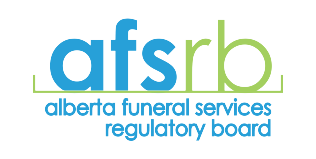Frequently Asked Questions
It is common to have questions about the funeral process. This section answers some commonly asked questions to help make this process easier for you. If additional questions arise, please feel free to contact us directly at the funeral home.
How can I compare prices between funeral homes?
Answer: With any significant purchase, comparing prices is often beneficial to the consumer. Funerals are one of those purchases that many people rarely research before they choose a provider. What many people don’t realize is that not every funeral home allocates their charges in the same way. If you intend to shop around for prices, it is important to ensure that you are receiving the same services from each provider. Most costs will be broken down into transportation, professional services, and facilities categories. To get a fair comparison, you must add all the charges rather than just comparing one category. It is also very important to understand any and all extra costs that may be added to the final bill. Meeting with a funeral director to go over your ideas is the best way to get an accurate price on your funeral plans.
What is Cremation?
Answer: Cremation is the process of subjecting dead human remains to direct flame and reducing them to a powder-like substance that can be buried or scattered. A crematorium reaches temperatures of around 1600° C. This process takes roughly 4-6 hours, depending on several factors. All that remains after the cremation is bone fragments and ash that is reduced to a finer powder to be placed in an urn and returned to the family or scattered. A stamped medallion is often placed with a body to ensure proper identification, along with many other systems in place to ensure the identification of the cremated remains is never in question. The cremated remains are entirely sterile and completely safe to handle. Because cremation is irreversible, unlike burials, more paperwork is required, including permission from a Medical Examiner, before a crematorium may proceed with any cremation.
What is Embalming?
Answer: Embalming, by definition, is the “process of chemically treating the dead human body to reduce the presence and growth of microorganisms, to temporarily inhibit organic decomposition, and to restore an acceptable physical appearance.” This process is usually performed by injecting a formaldehyde based chemical into the arterial system. The formaldehyde reacts with proteins in the body and renders them unsuitable for microorganisms to grow on. This is a temporary situation and the body will eventually decompose naturally depending on several external factors such as the type of casket and soil conditions. Embalming is not legally required except when transporting across borders or with public transportation, although many funeral homes require embalming if there is to be a public viewing.
How do I donate my body to science?
Answer: In southern Alberta, the University of Calgary is the medical centre that accepts bodies for scientific study. In order to be accepted as a candidate, you must first register with the University before your death. You will also be required to fill out a few forms that should be left with your executor or next-of-kin for easy access after your death. The University reserves the right to refuse any body based on several circumstances. For more information please contact the University of Calgary Body Donation Program at 403-220-6895 or by email at anatomy@ucalgary.ca. To visit the University of Calgary Body Donation Program website, please click here. To register for the program, contact the program at the above phone number or go to their website and print off a registration form.
When is a Medical Examiner required?
Answer: In most cases, the attending physician is able to provide the documentation required after a death occurs. In some cases, a Medical Examiner (M.E.) is required. These cases include accidents, unnatural, violent, unexplained, or unexpected deaths. Other situations include if the death is due to negligence, if the deceased was in custody, if the death occurred within 10 days of an operation, if the deceased was under anesthesia or recovering from anesthesia, or if the death is occupationally related. There are several more specific circumstances that require a M.E.’s attention. In the event that an M.E. is required, they will examine the deceased to find a reason for the death and notify the family when any results are found. At any point, the M.E. may authorize an autopsy without requiring prior consent from the family of the deceased.
Where can I scatter cremated remains?
Answer: In Alberta, as with most of Canada, there are no actual laws pertaining to the scattering of cremated remains. However, there are some guidelines that should be followed. In all cases, permission should be obtained prior to scattering. Scattering is permitted on any Crown land, including in water. National parks prohibit the scattering of cremated remains in water, although you may “cast them to the wind” without obtaining permission. You may also scatter cremated remains in most municipal parks and cemeteries but only with permission from the municipality. When scattering cremated remains on private property, it is important to obtain permission from the owner of the land prior to the scattering. In any case, when scattering cremated remains, it is recommended that the scattering is done with discretion.
How does Caveat Emptor apply?
Answer: Caveat Emptor. Buyer Beware. When someone buys a car, they can research the vehicle, read reviews, as well as test-drive that car before they purchase. Death does not allow for that ‘test it out first’ type of shopping. In fact, it is written in legislation that the funeral industry is not permitted to work by the philosophy of Caveat Emptor. With one internet search, you can find articles speaking of the unscrupulous nature of funeral directors. The reality of the situation is that, like any industry, there are always some immoral individuals. However, the vast majority of funeral homes will do whatever is possible to meet the needs of grieving families. Funeral directors are required to explain everything to a family, knowing that families are often unfamiliar with the industry. As such, Caveat Emptor does not and cannot apply in the funeral industry.
What value does a cemetery have?
Answer: A cemetery is a place where lives are commemorated, deaths are recorded, families are reunited, memories are made tangible, and love is undisguised. Communities accord respect, families bestow reverence, historians seek information, and our heritage is thereby enriched. Testimonies of devotion, pride, and remembrance are carved in stone to pay warm tribute to the accomplishments and the life, not the death, of a loved one. The cemetery is homeland for family memorials that are a sustaining source of comfort to the living. A cemetery also serves the purpose of creating a location for a family to visit to express their grief in the years following a death. In many cases when cremated remains are scattered a family will purchase a plot so that they have a location to visit and a permanent remembrance of the deceased.
What recourse do I have for poor service or overcharging?
Answer: The Alberta Funeral Service Regulatory Board (AFSRB) is the governing body of funeral practice in Alberta. If at any point you believe you are being mistreated by a funeral home, the AFSRB should be contacted. They will investigate your claims to ensure that both their standards, and the standards written in Alberta legislation are being upheld. In the funeral industry, due to the sensitive nature of the business, ethical behavior is expected, and legally required from every funeral service professional. A funeral director, embalmer, or entire funeral service business can lose their license if the AFSRB finds that their behavior does not comply with the legislation or high ethical standards that are expected of our industry. For more information, you can visit www.afsrb.ab.ca or call 1.800.563.4652.
Should children go to a funeral?
Answer: Every child is different. Children will grieve a death but it is often misinterpreted as being ‘cranky’ or ‘moody’. The best way to deal with children surrounding a death is to be very open and honest with them. Even if they don’t fully understand the implications of death, it is best to explain it to them. Terms like ‘gone away’ or ‘went to sleep’ can create a misunderstanding, and even fear, of going away or to sleep because they may not come back, like the deceased did. Often people try to shield their children from death but it is often much more important for them to experience the same things as adults so that they can be involved with the family, rather than excluded from such an important event. There is nothing that occurs at a funeral that would be inappropriate for children to experience.
Why is there a weekly “Ask a Funeral Director” article?
Answer: The funeral industry is unlike any other. People have many questions about funerals but are often afraid of the answers or afraid of asking close relatives for fear of bringing up pain. This article was started to answer those questions. Many people have never dealt with a funeral before and are very misinformed about the industry. Television commercials will tell you most funerals cost $10,000 and online sources will tell you all funeral directors are con artists, both of which are false claims. We believe very strongly in the value of funerals and we also believe that every person who needs our services should be as prepared as possible. This article is intended to give proper information on a wide range of topics that apply to the funeral industry. If you have a question, please call us or email it to info@wheatlandfuneralhome.ca.
What happens if I don’t have a will?
Answer: When a person dies without a will, it is referred to as intestate. The family is often uncertain as to who is in control of the estate and the funeral arrangements. If the deceased has a surviving spouse, that person becomes the legal next-of-kin. Without a spouse, the chain continues to the oldest adult child, then the parents, then oldest adult grandchild, and further down the line to nieces and nephews. If the proper next of kin should decline their duties, it is passed on to the next person in line. The next of kin then needs to file a request with the courts to be named the administrator before they are granted access to the estate. However, when there is no legal will, the administrator of the estate is obligated to follow legislation regarding the division of the estate. This division is based on the value of the deceased’s estate. If the estate is worth less than $40,000, the entire estate will be passed to the spouse. If the estate is worth more than $40,000 the spouse will receive the first $40,000 and the rest of the estate will be divided according to the Intestate Succession Act. The details of this Act can be found online here. Your funeral director can answer any further questions you may have.
What can I do now to plan for my funeral?
Answer: Perhaps the most important thing to do is to have an open discussion with your family about your, and their, needs for your funeral. Your local funeral home can provide you with booklets to aid you in collecting necessary information as well as provide you with funeral options that you may not have considered. Another step you could choose to take now is to prepay a funeral account. Your funeral director can help set up a funeral policy that is handled by an insurance company. This means your account is not permanently linked to any specific funeral home and will follow you if you decide to move. You may also choose to use another funeral home with no penalties. These accounts can be set up as either monthly payments or a lump sum and will accrue interest annually. The interest gained will usually cover any market inflation over the course of the policy. Your funeral director can answer any further questions you may have.
Who is the funeral service for?
Answer: Contrary to popular belief, the funeral is not for the deceased but rather in honour of the deceased. The funeral is truly for the bereaved that are left behind to find a new identity without the deceased in their life. It encourages the family, in an organized way, to express their feelings of loss, helplessness, and loneliness while allowing the community to show it’s support and share the sorrow that the family is experiencing. Many people today wish to spare their family the hassle and expense of a funeral and simply ask that one not be held for them. What is often overlooked is what the needs of their family will be once the death occurs. By removing the ability to have a funeral, the bereaved may be left with no acknowledgement of this major change in their life. It is important that a very open discussion is held with your family to discuss what they will need when planning your funeral arrangement.
HELPING YOU PLAN
Are you looking to add a personal touch to your loved one's funeral service? Would you like to browse through our catalog of viewing merchandise? Maybe you want to learn more about planning your own funeral. We've made all of this information — and more — available for you to explore in the comfort and privacy of your home.
> LEARN MORE
HELPING YOU GRIEVE
Our experience has taught us that when losing a loved one, those left behind feel lost and alone. Many do not know where to turn to or how to cope. Our grief support programs in place are dedicated to helping you during your difficult time and making each day a little easier for you when a loved one is lost.
>LEARN MORE
OBITUARIES
We understand that it is not always possible to attend a service or visitation in person, so we encourage you to use our beautifully designed interactive online tributes to pay your respects. Leave a condolence, share a memory, post a photo, light a candle, and more!
> VISIT OBITUARIES

SERVING STRATHMORE AND AREA SINCE 1984
202 Lakeside Blvd
Strathmore, AB | T1P 1K1



